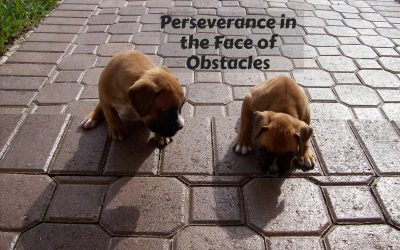Work Out Salvation by Running Bases?
When we moved into our home twenty years ago, we installed new carpeting. But if you visit me today, a quick glance at the same carpets will tell you a lot about our habits without a word spoken. You could easily determine the pathways we tread most often. But telltale signs of wear didn’t happen overnight. The carpet pile started out plush (okay, not too plush—after all, it was on sale). Then we stepped on it—one step, ten steps, one hundred, ten thousand—countless thousands of steps left their cumulative effect. One step did not cause the wear. They all did.
Habits are much the same. We’re not born with them, and they don’t develop overnight. Habits are formed by repetitive choices that eventually become involuntary behaviors, performed without forethought. We usually associate the word “habit” with bad behaviors, such as biting our nails. Habits, however, extend to every area of our lives: our emotions, minds, bodies, how we spend our time, and how we use our words, just to name a few.
Which brings us to our salvation . . .
Cultivating Spiritual Habits
Salvation is God’s work. Developing good spiritual life habits is our response to His salvation. And the apostle Peter wrote about this in 2 Peter 1:
“To those who through the righteousness of our God and Savior Jesus Christ have received a faith as precious as ours . . . His divine power has given us everything we need for a godly life through our knowledge of him who called us by his own glory and goodness . . . For this very reason, make every effort to add to your faith goodness; and to goodness, knowledge; and to knowledge, self-control; and to self-control, perseverance; and to perseverance, godliness; and to godliness, mutual affection; and to mutual affection, love.”
Peter established the basis for our salvation: faith in the righteousness of Jesus. Then he goes on to explain the behaviors required to form the basis for good habits, using the phrase “add to” at each new step.
- “make every effort”
Peter begins by telling us to “make every effort.” He calls us to pursue these things with a concentration of energy, focus, and urgency.
- “add to your faith”
Our salvation is by God’s grace through faith. We start with faith because it’s the foundation upon which all the rest is built.
- “add to your faith, goodness”
The Father calls us by His own goodness. Once we respond in faith to His call, we are responsible for applying the same standard to our own choices and behaviors, as we cooperate with the process of conforming us to the image of Jesus.
- “to goodness, knowledge”
Without God’s goodness, knowledge can deteriorate into an intellectual pursuit that makes us arrogant.
I once attended a seminar on learning ways to share the gospel. As we role-played with our partners, my turn was “picture-perfect.” My partner, however, nervously struggled through each illustration. I remember thinking she would confuse anyone she spoke to (double shame on me!). A week later our group met to share feedback. While I had done nothing with my “picture-perfect” presentation, my partner had led two people to Christ. I had pursued knowledge, while she applied her knowledge to God’s goodness, and shared new life with two people. It’s a lesson I’ll never forget.
- “to knowledge, self-control”
The right use of knowledge requires control of our own will by the influence of the Holy Spirit. When we practice what we learn, people will see a reflection of the Father who dearly loves them.
- “to self-control, perseverance”
Habits take time to develop. When we fail, we pick ourselves up, confess it to the Lord, and keep on keepin’ on.
- “to perseverance, godliness”
In adding godliness to perseverance, we are establishing a heart attitude that honors the Father in the midst of our circumstances.
- “to godliness, brotherly kindness”
If we want to please the Father, we’ll be kind to His children. And this brings us to the final step:
- “to brotherly kindness, love”
Beyond brotherly love, we begin to put on agape love—the love the Father has for us. Jesus commanded His disciples to love one another. This is the mark by which we are known as His disciples today.
Relationship of Faith and Work
So what do all these “efforts” tell us about the relationship between faith and work in our salvation?
The apostle Paul wrote in Philippians 2:12-13, “As you have always obeyed—not only in my presence, but now much more in my absence—continue to work out your salvation with fear and trembling, for it is God who works in you to will and to act in order to fulfill his good purpose.”
We know our salvation is by God’s grace alone, through faith. It’s not based on our good works (Ephesians 2:8-9). So if salvation is God’s work, why would Paul tell us to “work out” our salvation? Is this a contradiction? And if not, how do we reconcile both statements?
A baseball example by commentator David Allen illustrates how this is not a discrepancy at all! When a batter hits a home run, in order for the homerun to be realized in the team’s score, the batter is still expected to run the bases all the way to home plate. Jesus hit our salvation “home run” for you and me. And by the equipping of the Holy Spirit, we have the responsibility of living out what God works in us by running the bases of life, as Paul stated and Peter instructed.
How are you living out the salvation God has worked in your life?






0 Comments